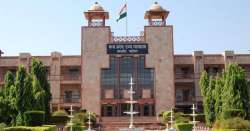Madhya Pradesh High Court to hear pleas against hike in OBC quota from August 21
After Chief Minister Kamal Nath recently announced the new ceiling for the reservation, he was felicitated by a host of OBC organisations on the Independence Day eve. The state will be first to have 27 per cent reservations for backward classes if the court clears it.

The Madhya Pradesh High Court has decided to club all the petitions challenging the Congress state government's decision to raise the reservation for the OBCs from 14 to 27 per cent and will hear all the petitions from August 21.
Pro- and anti-reservationists have been battling it out on diverse fora at a time when the parties have been facing the heat from within over the issue. The ripples are seen in all spheres with each caste group demanding their share of power at every step in elections from village panchayats to parliament.
After Chief Minister Kamal Nath recently announced the new ceiling for the reservation, he was felicitated by a host of OBC organisations on the Independence Day eve. The state will be first to have 27 per cent reservations for backward classes if the court clears it.
Four petitions have been filed arguing that after the government's latest decision, the total reservation will be 63 per cent -- 13 percent more than the 50 per cent cap. The state has 16 per cent quota for SCs, and 20 per cent for STs.
There are four petitions pending in the High Court favouring the government's decision to raise the reservation for OBCs to 27 percent in the state. On Friday, the OBC Advocates Association, the OBC SC/ST Ekta Manch and APAC organizations sought to intervene, saying the reservation extended by the government is legal, and so they should be given a chance to be heard.
A division bench of Justice Sujoy Paul and Justice B.K. Srivastava accepted all intervention applications for hearing and directed all the original petitioners to give one copy of the petition to the interveners. The court now directed all petitions can be heard simultaneously.
Advocate Rameshwar P. Singh, on behalf of the organizations associated with the OBCs, argued that in the Indira Sawhney case, the Supreme Court itself has given permission to the states to increase the reservation to the OBCs on the basis of population and representation. The state has 54.8 per cent OBC population.
It was also argued that OBCs have more reservation in Karnataka, Tamil Nadu and Andhra Pradesh and the total reservation there is around 68 per cebt. The Mumbai High Court has also allowed Maratha reservation and there too the total reservation is more than 50 per cent. It was also said that reservation in local government is 64 and 57 per cent in panchayats and urban bodies, respectively.
The government had passed an Ordinance on March 9 to implement the quota. However, the High Court stayed it on March 19. The idea was to implement the quota before April 11, the date for Model Code of Conduct to come into force before the Lok Sabha elections.
The ordinance was part of an effort by the Congress government to win back support of the OBCs, most of whom voted for the BJP as Shivraj Singh Chouhan, the state's longest-serving Chief Minister, is from the OBC community. The government then circumvented the stay through the assembly resolution.
